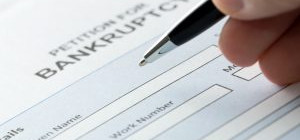 Filing bankruptcy provides an opportunity for a fresh financial start; the psychological benefits of a debt-free existence are immense. But, it also has its downsides in that it totally kills your credit. This black mark will remain on your credit report for many years to come. While you will not be shunned from obtaining credit forever, you may have a tough road ahead. Rebuilding your credit history and raising your score is important. Here are some tips for bouncing back from bankruptcy and getting your financial life back on track.
Filing bankruptcy provides an opportunity for a fresh financial start; the psychological benefits of a debt-free existence are immense. But, it also has its downsides in that it totally kills your credit. This black mark will remain on your credit report for many years to come. While you will not be shunned from obtaining credit forever, you may have a tough road ahead. Rebuilding your credit history and raising your score is important. Here are some tips for bouncing back from bankruptcy and getting your financial life back on track.
Check Your Credit Reports
Once your debts have been discharged, you should take a look at your credit report from all three credit reporting agencies. Your credit score has taken a major hit as is, and inaccurate reports where discharged debts are still showing as open, will only make things worse. If you see any mistakes, file a dispute immediately. You are able to initiate a claim online so it is an easy process.
Get New Credit
You just filed for bankruptcy, and now people are telling you that you have to get more credit? They're kidding right? No. The only way to improve your credit score is to start building a history of responsible credit use. You may think that you could never get a card in a million years, but you would be surprised. Someone close to me filed bankruptcy, and within months, he was receiving offers for unsecured credit cards—granted interest rates were high and limits were low, but they were legitimate credit cards nonetheless.
If worse comes to worst, you can apply for a secured card and you will almost certainly be approved, as you are required to place a deposit equal to the credit limit on the card—this eliminates the risk to the creditor and helps you establish a nice history of timely payments. Keep debts to less than 30 percent of total available credit—more than this suggests living beyond your means, and will cause your score to take a hit.Regardless of the type of card you are looking at, you can find several resources online about how to choose one.
Aim for a Mix of Credit
You may not be able to employ this strategy right off the bat, but over the next year or two after your discharge. A mix of credit can help boost your score more than just having regular credit cards. You may need to start off with just a secured card or a standard credit card, but over time, apply for store cards or a gas card. Get a small personal loan, or an auto loan. If you had a student loan before bankruptcy, chances are you still have it now since they are only discharged in the most extreme of circumstances—timely payments on it will certainly help your credit profile and your score.
Pay Your Bills on Time!
This one almost goes without saying, but it is such a crucial piece of the rebuilding-your-credit-puzzle, that is has to be mentioned. Timely payment of debt accounts for 35 percent of your credit score. To avoid any hiccups in the process, schedule your payments automatically so that you do not have to worry about it each month. If you run into trouble with payments, call your creditors and tell them what is happening. Awhile back when I ran into some financial troubles, I talked directly with my bank and let them know what was happening. They were very understanding and worked with me to keep current with payments, even if I could not pay the full amount due. It kept them from calling me off the hook, and they did not report my payments as late.







